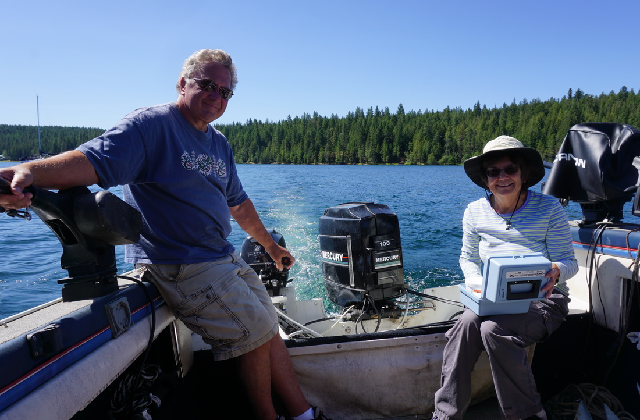Thousands of Bonner County residents and visitors visit Lake Pend Oreille and the Pend Oreille river to swim and fish. The lake and river also provide a source of clean water for drinking and irrigation. But the water does not stay clean on its own, especially due to water pollutants such as pesticides, wastewater and fossil fuels from rail transportation.
The mission of Lake Pend Oreille Waterkeeper (LPOW) is to protect the water quality of the Clark Fork/Pend Oreille Watershed so that local waterways remain swimmable, fishable and drinkable for future generations. LPOW monitors the quality of lakes, rivers and stormwater and addresses potential pollutants.
Innovia Foundation awarded LPOW a $20,000 Equinox Foundation grant to fund its goals of assessing and improving water quality and educating the public about preserving local waterways.
In 2016, LPOW produced approximately 1,200 data points, which were used to evaluate trends in water quality. LPOW supports permits that restrict the amount of pollution from wastewater treatment plants and a former wood treatment facility. LPOW has also advocated for reduced aquatic herbicide use, partnering with the City of Sandpoint to keep marinas and public swimming areas chemical free.
In addition, LPOW educates local students about the importance of maintaining water quality. In 2016, LPOW’s Executive Director presented a lake model to numerous classrooms in the area, and LPOW also enrolled 20 students in Watershed Discovery Camp, which combines water preservation education with recreational activities such as kayaking and paddle-boarding.
“Support of our monitoring efforts has allowed LPOW to produce meaningful data that has driven important management decisions at the local, state and federal levels, protecting the beneficial uses of our local waters,” said Dr. Shannon Williamson, Executive Director of LPOW. “Support of our education programs has helped develop and foster the next generation of environmental stewards and a life-long respect for protecting our water resources.”

